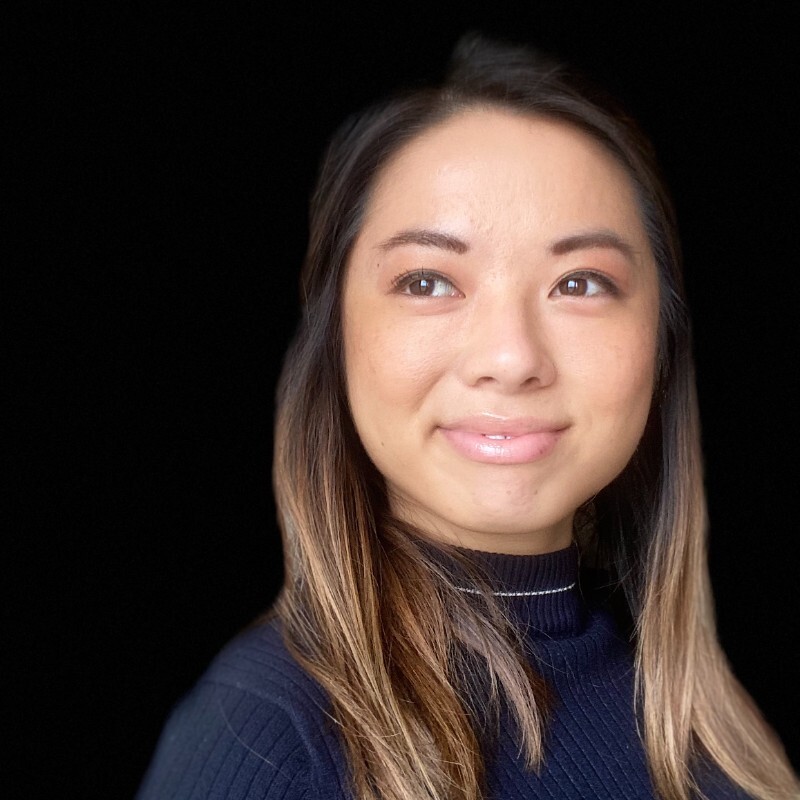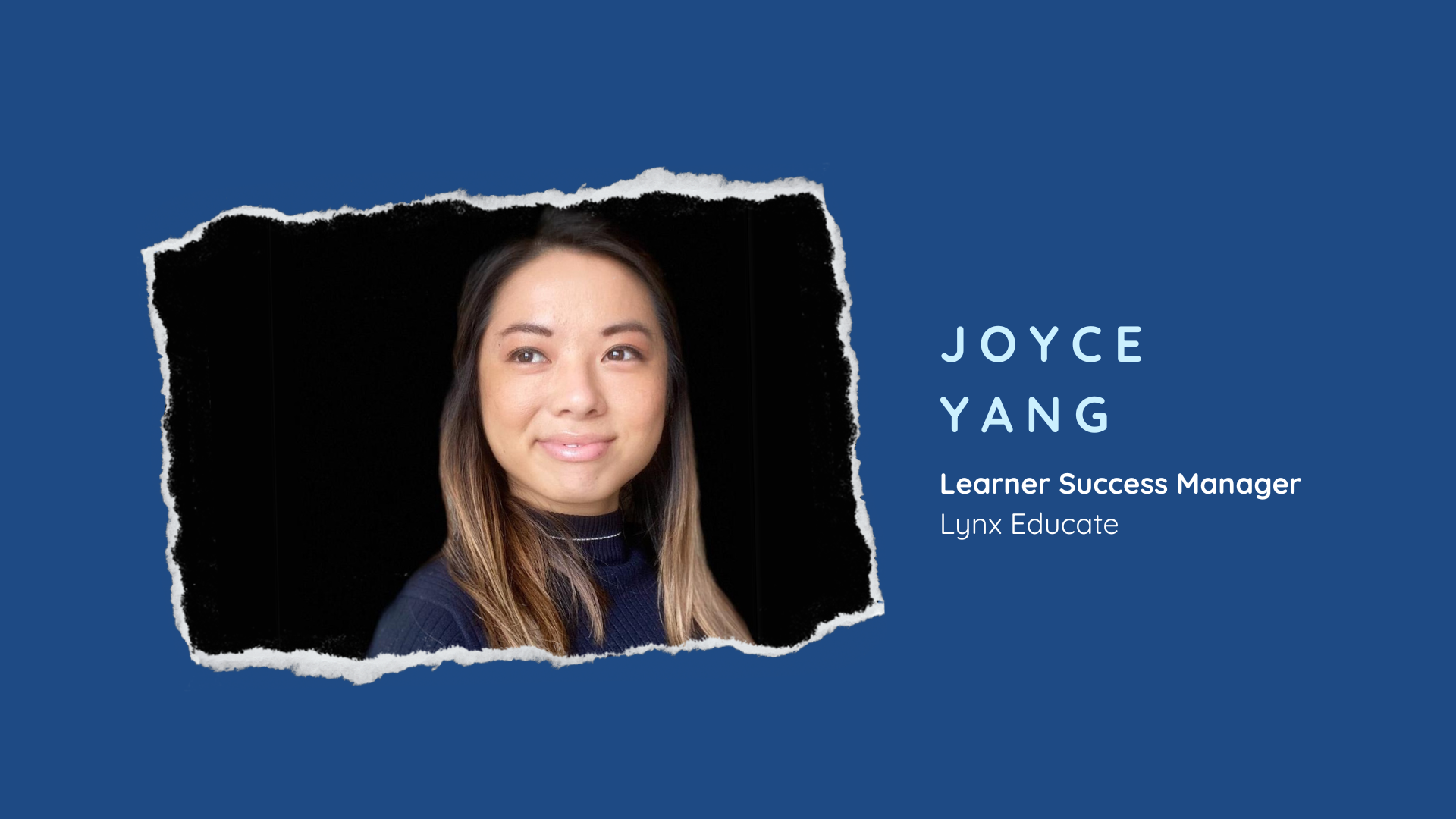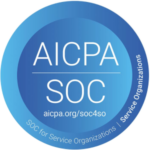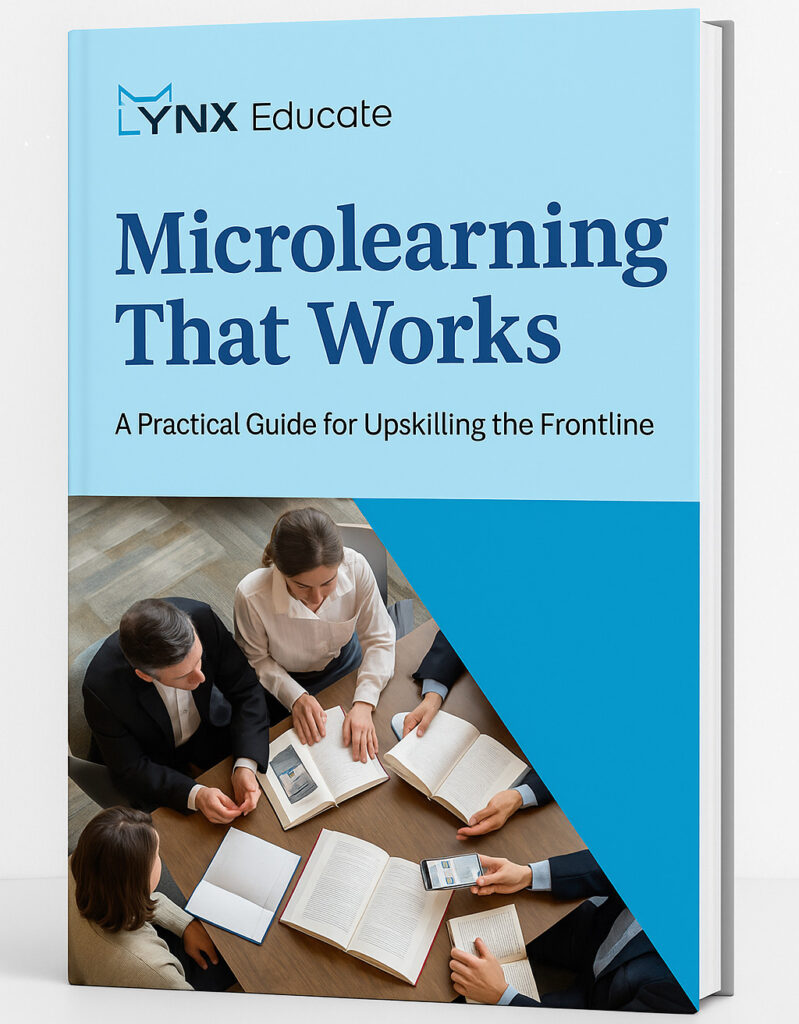Lynx Learner Success Manager Joyce Yang leverages her education expertise to share insights on how to foster a culture of continuous learning — on both the individual and company level.
Can you please introduce yourself?
My name is Joyce Yang, and I’m the Learner Success Manager here at Lynx. I grew up in California but have been based in France for the last couple of years. My work primarily focuses on supporting our learners as they successfully complete their Lynx learning programmes — and beyond!
I’m a big fan of being outdoors, barre and pilates, and all things green and green tea.

Can you tell us a little bit about why you joined Lynx? And how you got interested in the L&D industry?
Most of my career has been in the realm of education. I used to be a history teacher at a public school in the United States, and have also worked at an educational nonprofit in France. While those experiences were very gratifying, I moved into EdTech because of its potential to expand access to quality education.
What we’re doing at Lynx offers real, life-changing learning to people who may not have the same opportunity otherwise.
What has been your favorite Lynx moment to date?
Speaking with our Lynx learners is always a highlight. It’s a pleasure and privilege to get to share in each user’s learning journey. These conversations confirm my belief in the transformative power of education. There really is a huge appetite for personal and professional development across the board.
Given your previous experience in education, how do you think companies can create a culture that promotes continuous learning and development?
Great question. In my experience, creating a culture of continuous learning begins with talking the talk and walking the walk. Employees can tell when offering learning opportunities is perfunctory. Instead, L&D leaders should double down — setting aside time in the workweek for learning, setting an example by enrolling in programmes themselves, and making the experience fun.
Continuous learning initiatives should also be collaborative — we don’t learn in silos. This means leaders need to generate investment and buy-in from their employees, while incorporating constructive feedback and allowing for employee choice.
Finally, I’m a strong believer in strengths-based training. People are motivated to learn and develop when they feel they’re being acknowledged, recognized, and heard. So as best as possible, that looks like offering personalised learning paths for each learner.
What is your personal approach to continuous learning? And are there any resources or tools that we should know about?
My personal approach — staying curious and keeping a growth mindset. There’s a big difference between “I don’t know how to speak Japanese” and “I don’t know how to speak Japanese yet.”
As for resources or tools, I’m a big fan of podcasts and audiobooks to learn on the go. And a little gamification doesn’t hurt either — I’m probably a little too serious about my 1500+ day streak on Duolingo.
If you could wake up tomorrow having gained one new skill, what would it be — and why?
Putting aside superpower skills that defy physics, I’d love to be an excellent classical pianist. Music has always been a big part of my life. I love its ability to convey thoughts and feelings without words. So taking my own advice, maybe I should say: “I’m not an excellent classical pianist just yet.”




